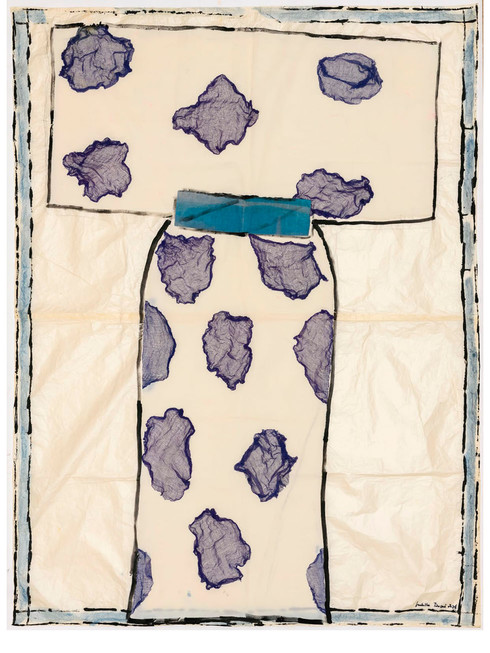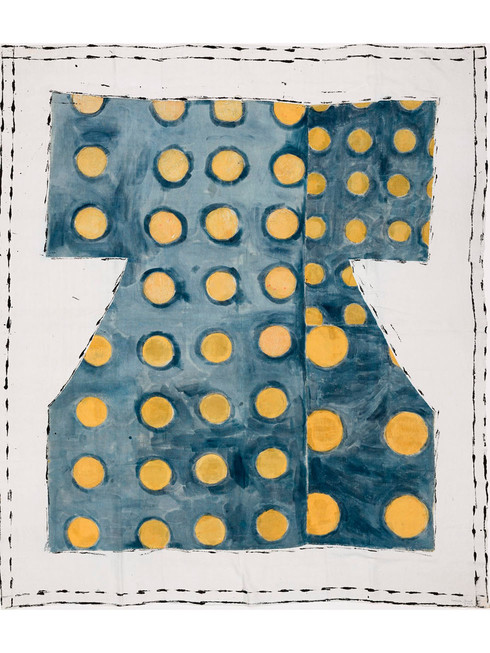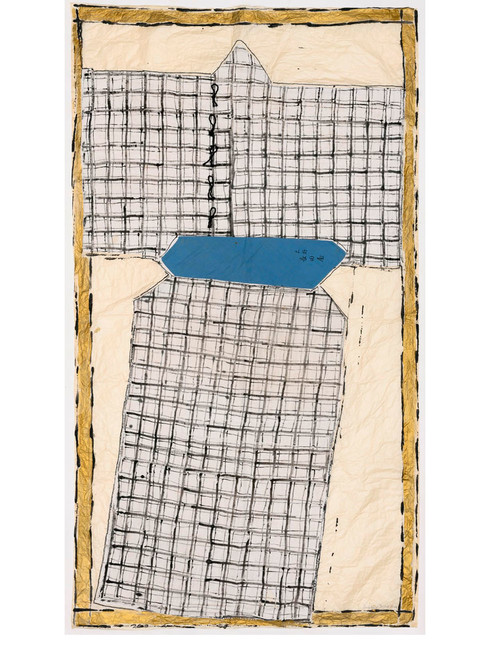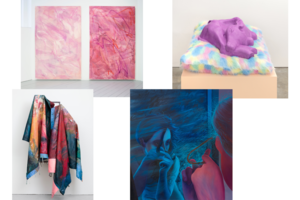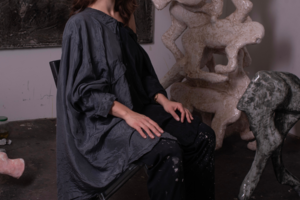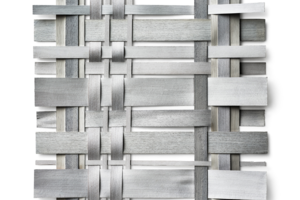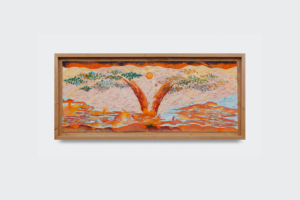Isabella Ducrot
Written by Sandra MyhrbergOdalisque had the opportunity to ask some questions to Isabella Ducrot, who lives and works in Rome. Known for her innovative use of woven textiles as the foundation of her paintings, Ducrot began her artistic career later in life. Through her extensive travels in Asia, she has amassed a remarkable collection of antique fabrics from Turkey, India, China, Tibet, and Afghanistan, which often feature prominently in her work. She is currently exhibiting at Gallery Belenius in Stockholm.
You began your career as an artist in your fifties, which is unconventional. What inspired you to start creating art later in life?
I just did it—no clear reasons came to mind.
You grew up in Naples during a turbulent time in history. How did your childhood and the experience of war shape your artistic sensibilities?
Not at all. For children, what happens is normal. I thought war was a normal condition.
What inspires you?
Everything!
Your work often incorporates textiles and paper. How did your extensive travels and the collection of rare fabrics influence your choice of materials and themes?
The quality of textiles was very important—the colors, the textures, the decorations. But little by little, I understood that my main interest was in the texture, not the decoration. It’s the same with paper; for me, the quality of the paper is what matters.
What was it like to work with Dior? What is your view on fashion?
Working with Dior was very, very interesting. Their attention to historical traditions means a great deal to me. Fashion is important for understanding a society; it’s like a mirror reflecting the aesthetic history of a country.
Do you consider yourself a feminist? If so, how has that perspective influenced your art and shaped your view of society?
I never forget that I am a woman, and after that, I am a feminist. I’m very interested in feminine language.
What kind of response did you receive at Frieze Masters in London earlier this fall?
I’m extremely excited about Frieze Masters 2024.
How much do you work, and what do you dream of for the future?
I work every day, with great pleasure, and have no specific plans for the future.
Do you have any advice for younger artists?
Read, study, and annoying yourself.
What does the future hold for your art, and how do you hope your legacy will be remembered?
It’s not a concern for me. I’m not anxious about the destiny of my works.
2024 by Isabella Ducrot / Belenius
On view
08.11 – 07.12.2024


